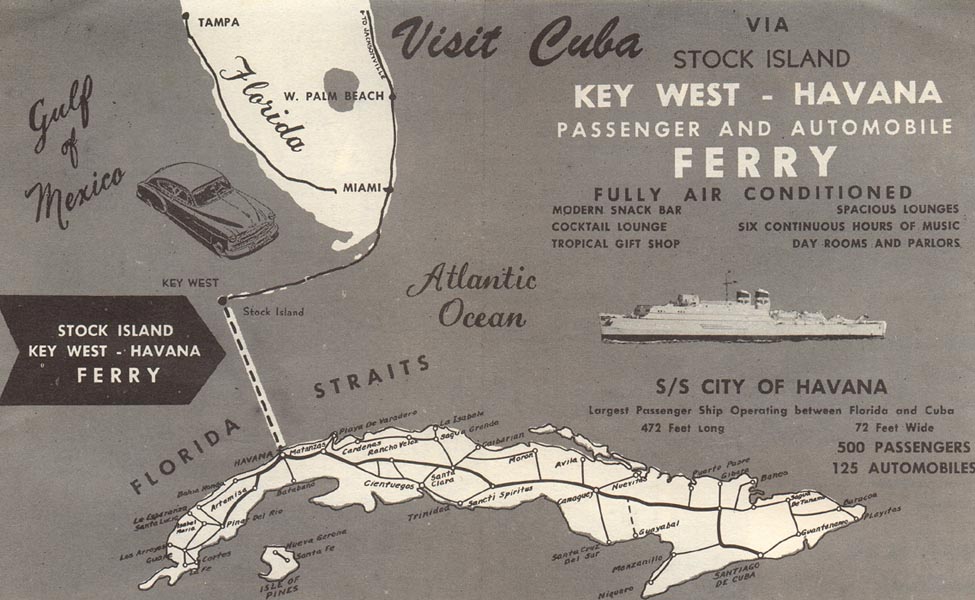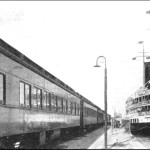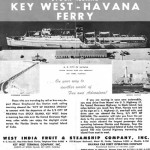
Fort Lauderdale man trying to start daily Marathon-to-Cuba ferry service
With travel restrictions to Cuba eased since last year, a Fort Lauderdale-based company is looking to start a ferry service from the Marathon City Marina to Havana, Cuba, by the end of the year.
Catamaran broker Brian Hall, owner of KonaCat, said he’s confident he can get clearance for his 200-passenger catamaran to travel from the Florida Keys to Cuba twice a day. He hasn’t decided the number of days a week it would run. A four-hour one-way trip would cost $169 or ($338 round trip).
Ferry service between the Keys and Cuba was huge before the U.S. government halted travel to Cuba shortly following the 1962 Cuban Missile Crisis.
Hall said he’s wanted to start roundtrip service to Cuba from the Florida Keys after a 2011 business trip to Havana.
With President Obama’s announcement in December that most travel restrictions for Cuba were being lifted, Hall decided to apply to the U.S. Office of Foreign Asset Control to travel to Cuba. The Office of Foreign Asset Control operates under the U.S. Department of the Treasury.
“We’re going to operate as a nonprofit organization. I feel pretty certain we’ll get the OFAC license,” Hall said. “The trips are going to be for religious groups, educational trips and for Cuban-Americans to see their families again.”
General U.S. tourism travel to Cuba remains banned but the federal government has no way to enforce it. It’s basically an honor system — one must cite a specific non-tourism reason to go to the island.
Generally, travel to the country must be for family visits, official business of the U.S. government, journalistic activity, educational programs, religious activities and humanitarian services.
According to Hagar Chemali, spokesman for the Treasury Department, Hall would still be able to take people from Marathon to Cuba even if he is denied a general license.
“General licenses have been issued for travel to Cuba within categories of travel that Treasury has jurisdiction over — that means travelers that meet the requirements within those categories do not need to apply for a license as the travel is generally permitted,” Hagar said. “Travel service providers and air carriers also would not require a license to provide services to authorized travelers.”
Hall must work out how he will work with U.S. Customs and Border Protection to clear travelers and prevent Cuban stowaways from hiding on board and coming to the U.S. Hall said he’s working with agents at the Customs station in Marathon to address those issues.
Hall said he hopes the under-construction Customs international entry point will be completed at Florida Keys Marathon Airport before the first vessel launches. Assistant Director of Airports for Monroe County Thomas Henderson said the Customs office could be complete by August.
Former Mayor Dick Ramsay, who helped spearhead getting the official international point of entry at the Marathon airport, has expressed interest in the past of extending Customs’ services from the airport to the city marina.
Regardless of the status of the entry point at the airport, Hall said he’ll work to have regular inspections with Customs agents.
“When we dock, the boat will be given to a Customs agent who will sweep the whole boat and all the baggage,” Hall said. “It will be similar to the Customs screening you get if you flew into the country by plane.”
Space for what would be an increase in parking at the Marathon marina is another obstacle Hall said he’ll have to overcome. Still, having traveled to Cuba himself last month, Hall sees day trips from Marathon to Cuba as inevitable.
“It’s been a dream of mine for years, ever since listening about my grandmother’s visits during the 1950s,” he said.
(From: Keys Info Net)



